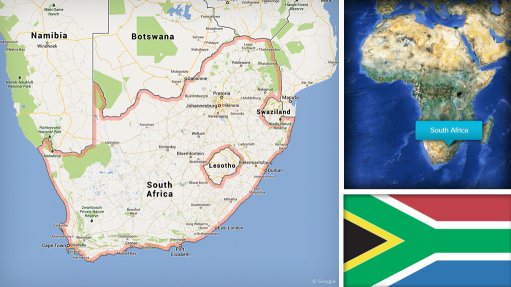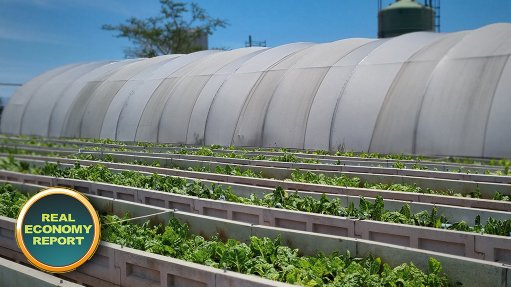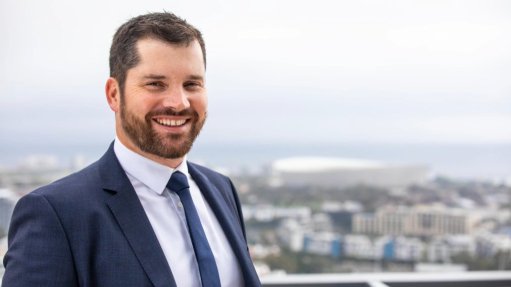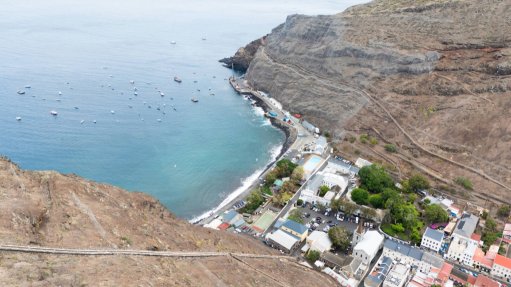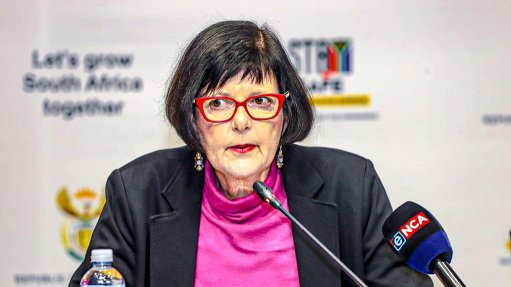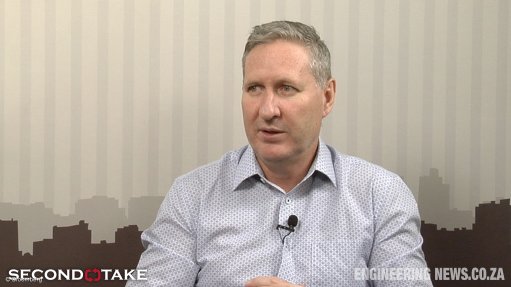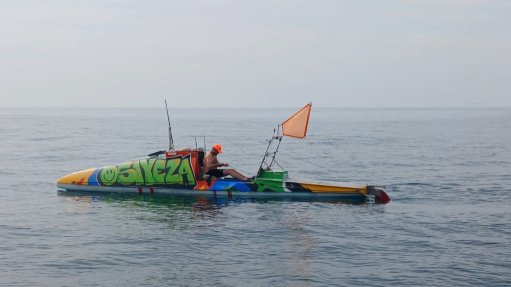“Harnessing the translational research framework to accelerate solutions for South Africa's electricity grid crisis”
This article has been supplied.
Author: PROFESSOR VALLY PADAYACHEE - POWER AND ENERGY EXPERT [A former Senior Executive at City Power Johannesburg and a former Executive Manager at Eskom]
South Africa's electricity grid crisis has been characterised by multifaceted interrelated issues involving technical, financial, governance, and infrastructural challenges. These include but are not limited to such issues as load shedding, aging infrastructure, electricity utilities experiencing severe financial strain, coal dependency, capacity shortages, governance and management, economic impact, energy poverty, transition to a low carbon economy and associated public discontent. Addressing this crisis requires concerted effort and comprehensive strategies that encompass investments in infrastructure, diversification of energy sources, improved management practices, and a commitment to sustainable energy solutions
In furtherance the electricity crisis has escalated to concerning and uncomfortable levels or proportions, marked by inter alia inadequate funding for essential infrastructure, until recently persistent load shedding, the deteriorating electricity grid integrity, and prohibitively high electricity costs and tariffs. As municipalities and Eskom grapple with huge debt and near bankruptcy, the urgency for innovative, sustainable solutions grows. The current electricity grid infrastructure is antiquated and ill-equipped to meet rising electricity energy demands, compounded by the nation's commitment to reducing carbon emissions and transitioning from fossil fuels to low carbon renewable energy sources. This transition is hindered by financial limitations, technological obstacles, and a pressing need for job creation and workforce development and a need for a prudent fit-for-purpose Balanced Just Energy Transition (“BJET”).
The electricity grid is a crucial infrastructure that enables the effective and efficient generation, transmission, and distribution of electricity energy or electrical energy (a convertible energy) to meet the needs of society. Its complexity and interconnected nature make it essential for economic growth, technological advancement, and overall quality of life. Its interconnected components work together to deliver electricity from producers (such as power plants), traders and prosumers to end-users (such as homes, businesses, and industries).
Translational Research (“TR”) presents a valuable framework with its fit-for-purpose "lab-to-grid" framework, which fosters essential collaboration between theoretical research and practical application. This framework aims to connect cutting-edge electricity energy technologies with real-world implementation, addressing South Africa's electricity energy challenges through an integrated approach that involves research, probing, practice, resources, and policy.
The term "translational" relates to turning scientific discoveries into practical solutions. TR emphasises the journey from theoretical knowledge to actionable outcomes, mirroring models in the medical field. This article seeks to examine how the lab-to-grid framework can tackle South Africa's critical electricity energy issues by promoting interdisciplinary collaboration and stakeholder engagement including the integrated collaborative participation of academia.
TR provides a systematic framework to expedite the development and application of effective strategies aimed at enhancing the country's energy infrastructure. Drawing parallels from the medical sector, South Africa can leverage TR to forge a resilient and sustainable electricity future for its citizens. As the nation navigates its electricity energy crisis, adopting translational approaches will be pivotal in transforming challenges into opportunities for innovation and growth.
Through iterative feedback loops, TR facilitates continuous refinement of solutions based on empirical data and community feedback—bridging the gap between theory and practice. By combining probing techniques with formal research, TR enables rapid testing and validation of new technologies tailored to diverse community needs. The importance of interdisciplinary collaboration is highlighted, showcasing how insights from science, engineering, social sciences, and policy can lead to comprehensive solutions to the electricity energy crisis.
Ultimately, this article posits that adopting the lab-to-grid framework within the TR framework can significantly bolster the resilience, reliability, and sustainability of South Africa's electricity grid. By translating research findings into actionable strategies, this paradigm has the potential to empower communities, foster energy equity, and support the nation's long-term decarbonisation goals. Embracing TR principles will pave the way for innovative solutions that guarantee a stable and sustainable electricity energy future.
The title aptly conveys a proactive narrative focused on transforming South Africa's electricity grid through an innovative, tailored approach, signalling a discussion on the potential of the lab-to-grid framework to resolve pressing electricity energy challenges. The emphasis on being “fit for purpose” reassures readers of the framework’s design to address the unique issues endemic to the South African electricity energy sector.
The primary purpose of TR is to bridge the gap between theory and practice in a collaborative, focused and integrated manner. This involves transforming foundational or basic research findings into technologies, interventions, or policies that can directly benefit society. In this sense, "translational" signifies the movement from abstract “lab” ideas to concrete applications that address real-world problems.
TR often involves collaboration among various disciplines, including academia, basic scientists, applied researchers, engineers, healthcare professionals, policymakers, and community stakeholders. The "translational" aspect underscores the importance of integrating diverse perspectives to ensure that solutions are not only scientifically sound but also practical, feasible, and socially acceptable.
The translational process is typically iterative, meaning that it involves cycles of research, implementation, evaluation, and refinement. Researchers may develop a new technology or intervention, test it in a practical setting, gather feedback, and then adjust based on real-world performance. This iterative nature of TR highlights the dynamic relationship between research and practice, where both inform and enhance each other.
In TR, the emphasis is on achieving meaningful outcomes that have a positive impact on individuals, communities, or systems. The term "translational" implies a commitment to not just generating knowledge, but actively applying it to solve pressing challenges. This outcome-oriented approach is crucial in fields like healthcare, engineering, and energy, where effective solutions can lead to improved quality of life and enhanced public welfare.
TR is particularly valuable in addressing complex, multifaceted problems that cannot be solved by a single discipline or perspective. By emphasising collaboration and the integration of various types of knowledge, TR facilitates comprehensive approaches to challenges such as public health crises, environmental sustainability, and energy systems management.
The translational aspect also emphasises the importance of ensuring that research is relevant to the needs and circumstances of the target population. This involves engaging with stakeholders, including end-users and community members, to understand their needs and incorporate their feedback into the research process. By prioritising real-world relevance, TR fosters solutions that are not only theoretically robust but also practically applicable.
TR an interdisciplinary approach that bridges theoretical research with practical applications—could be the key to addressing South Africa's energy crisis, particularly through the integration of Artificial Intelligence (AI), the Fourth Industrial Revolution (4IR), and capacity building.
TRANSLATIONAL RESEARCH: A PATH FORWARD
TR can deliver tailored solutions to South Africa's unique energy challenges by leveraging research and technology to implement practical solutions that enhance grid reliability and efficiency. The integration of AI and 4IR technologies offers transformative potential for optimising energy systems. For instance, AI can improve demand forecasting and real-time management of energy resources, while smart grid technologies facilitate the seamless incorporation of renewable energy sources.
Modernising the electricity grid is critical to addressing these challenges, requiring upgrades to infrastructure and the adoption of smart technologies. TR can spearhead efforts to develop new materials and communication technologies to enhance grid performance.
Human capacity building is vital to ensure the workforce can effectively manage advanced electricity energy systems. Collaborations with educational institutions can prepare engineers and technicians for the evolving energy landscape.
TR can also tackle energy poverty through innovative off-grid renewable systems equipped with storage technologies, providing reliable electricity to underserved communities. Research can focus on e.g. developing accessible solar technologies for low-income households, reducing reliance on conventional grids.
To meet climate commitments, South Africa must transition to low-carbon electricity energy systems. TR plays a crucial role in developing technologies that support decarbonisation, such as carbon capture and storage, advanced battery solutions, and green hydrogen production.
The complexities of South Africa's electricity supply call for strategic TR applications to devise immediate solutions while paving the way for sustainable futures. By embracing AI, modernising the grid, building capacity, and addressing energy poverty, South Africa can emerge as a leader in sustainable electricity energy innovation.
UNDERSTANDING AND CONTEXTUALISING TRANSLATIONAL RESEARCH
TR aims to convert scientific discoveries into practical applications for real-world problems. The "bench-to-bedside" model from the medical field serves as a guide, emphasising the transition from laboratory findings to practical solutions in electricity energy and engineering. Basic research seeks to understand fundamental principles, while applied research addresses specific problems. TR connects both to create viable solutions through collaborative efforts among researchers, industry stakeholders, policymakers, and communities, ensuring innovative yet practical outcomes. TR accelerates the development of solutions to South Africa's energy challenges through interdisciplinary collaboration, rapid prototyping, stakeholder engagement, and policy integration. The medical field's successful application of TR provides valuable insights for the electricity energy sector. By transitioning from laboratory discoveries to real-world applications, electricity energy researchers can implement innovative technologies in communities facing shortages. TR can significantly impact smart grid implementation, grid strengthening, renewable energy innovations, community solutions, and policy development, enhancing the overall energy landscape.
The lab-to-grid model can effectively and efficiently tackle issues like load shedding, grid congestion, energy poverty, and decarbonisation by promoting rapid technology adoption and fostering local capacity building.
THE UNIQUENESS OF THE TRANSLATIONAL RESEARCH FEEDBACK LOOP IN FINDING SOLUTIONS
The feedback loop in the TR process is a pivotal component that enhances its effectiveness in addressing the myriad challenges facing South Africa's power and energy sector. This feedback mechanism serves as a continuous cycle of evaluation, learning, and adaptation, making TR a key and unique aspect of developing innovative and practical solutions. The following is how this feedback loop operates and contributes to finding effective solutions in the context of South Africa's energy challenges:
Continuous learning and improvement: The feedback loop in TR allows researchers and practitioners to gather insights from each stage of the research and implementation process. After deploying a technology or solution, data and feedback are collected regarding its performance, user experience, and integration with existing systems. This information is invaluable for refining and improving the technology. For example, if a pilot project involving a new solar microgrid reveals issues with energy storage capacity during peak usage, researchers can analyse this feedback to enhance the system design, leading to better performance in future implementations.
Stakeholder engagement and responsiveness: In the energy sector, stakeholders include academia, electricity utility companies, generators, traders, aggregators, government agencies, local communities, and end-users. The feedback loop facilitates ongoing communication with these stakeholders, ensuring that their needs and concerns are addressed throughout the research and development process. This responsiveness is critical in South Africa, where energy poverty and access to reliable electricity are pressing issues. By actively involving stakeholders and incorporating their feedback, TR can tailor solutions to meet the specific needs of diverse communities, ensuring greater acceptance and effectiveness.
Adaptive solutions to dynamic challenges: The electricity energy landscape is characterised by rapidly changing conditions, including fluctuations in demand, technological advancements, and evolving regulatory frameworks. The feedback loop allows for real-time adjustments and adaptations to solutions as new challenges and opportunities arise. For instance, if a new regulatory policy incentivises certain renewable energy technologies, researchers can quickly pivot their focus based on feedback from market conditions, enabling them to develop solutions that align with the latest trends and requirements.
Validation of technologies and strategies: The feedback loop provides a mechanism for validating the effectiveness of new technologies and strategies through rigorous testing and evaluation. In the case of energy solutions, this validation is critical in ensuring that the technologies deployed can perform reliably under varying conditions. For instance, if a new battery storage technology is piloted and feedback indicates issues with charging efficiency during peak sunlight hours, researchers can investigate and refine the technology before wider adoption. This validation process builds confidence in the solutions being developed, making it more likely that they will be embraced by policymakers and industry stakeholders.
Data-driven decision making: With the integration of advanced data analytics and AI, the feedback loop can leverage large datasets generated from smart meters, renewable energy systems, and consumer usage patterns. This data-driven approach enables researchers to make informed decisions based on empirical evidence rather than assumptions. For example, analysing data from a smart grid pilot program can reveal patterns in energy consumption, leading to optimized demand-side management strategies that can reduce load shedding and enhance grid stability.
Facilitating multi-disciplinary collaboration: The feedback loop fosters collaboration between diverse disciplines, including engineering, economics, social sciences, and environmental studies. This interdisciplinary approach allows for a more comprehensive understanding of the energy challenges facing South Africa and promotes the development of holistic solutions. For instance, feedback from social scientists regarding community acceptance of renewable energy can inform engineers on how to adapt technology to ensure it meets both technical and social requirements.
Scaling successful solutions: Once a technology or strategy has been refined and validated through the feedback loop, it can be scaled up for broader application. The iterative nature of TR means that lessons learned from smaller pilot projects can inform larger implementations, ensuring that successful solutions are rolled out effectively. For example, if a microgrid solution proves successful in a rural community, the refined approach can then be adapted and implemented in other similar communities, increasing access to energy while minimizing the risk of failure.
THE UNIQUE AND VALUABLE INTERPLAY OF KEY ATTRIBUTES IN TRANSLATIONAL RESEARCH
The interplay between Practice (P), Probing (P), Research (R), Resources and Policies (P) forms a unique and valuable relationship that enhances the effectiveness and efficiency of TR in addressing the challenges facing South Africa's power and energy sectors. This synergy is particularly relevant given the current electricity crisis, which necessitates quick and innovative and practical solutions. Here's how this interplay takes place:
Integration of theory and practice: Practice (P) involves the application of knowledge and techniques in real-world settings. In the context of the electricity energy sector, this includes the implementation of technologies and strategies in communities, businesses, and utilities.
Value of integration: The integration of research findings into practical applications ensures that solutions are grounded in empirical evidence. By collaborating with practitioners—such as energy providers, engineers, and community leaders—researchers can develop technologies and strategies that are not only theoretically sound but also feasible in real-world contexts. This close collaboration helps to bridge the gap between what is known from research (includes basic and applied) and what is needed in practice.
Evidence-based policy development: Policies (P) are essential for creating a supportive framework that encourages the adoption of innovative solutions. Effective policies are often grounded in solid research and informed by practical experiences.
Value of evidence-based policies: By leveraging research findings that have been validated in practice, policymakers can create regulations and incentives that promote the deployment of successful energy solutions. This approach not only increases the likelihood of policy acceptance but also ensures that policies are aligned with the realities of the energy sector.
Value of the feedback loop: Information gathered from practical implementations informs both research and policy decisions. Practitioners can provide insights into the effectiveness of technologies and strategies, while researchers can analyse these insights to refine their approaches. Policymakers can also adjust regulations based on the outcomes observed in practice, ensuring that policies remain relevant and effective.
Fostering collaboration and innovation: TR encourages collaboration among researchers, practitioners, and policymakers, fostering an environment of innovation.
Value of collaboration: When these entities work together, they can leverage their unique strengths and perspectives to address complex challenges. This collaboration can lead to the co-creation of innovative solutions that meet both practical needs and policy objectives. An interdisciplinary team that includes researchers from engineering, social sciences, and environmental policy can work together to develop a holistic approach to energy management that considers technical feasibility, community acceptance, and regulatory compliance.
Addressing complex challenges holistically: The energy challenges facing South Africa—such as load shedding, grid congestion, energy poverty, and the need for decarbonisation—are complex and multifaceted. The TR relationship allows for a more holistic approach to problem-solving.
Value of holistic solutions: By integrating insights from practice, probing, research, resources and policy, stakeholders can develop comprehensive solutions that address the root causes of energy challenges rather than just their symptoms. This comprehensive approach is essential for creating long-term, sustainable solutions. A holistic strategy to combat energy poverty may involve not only deploying renewable energy technologies but also providing training programs for locals to maintain the systems, creating supportive policies for financing, and ensuring that the solutions are culturally appropriate and accepted by the community.
Enhancing resilience and adaptability: The interconnectedness of practice, probing, research, resources and policies enhances the resilience and adaptability of the energy sector.
Value of resilience: In a rapidly changing environment—exacerbated by factors such as climate change, economic fluctuations, and technological advancements and disruptors—the ability to adapt is crucial. By continuously engaging in the feedback loop, stakeholders can quickly respond to emerging challenges and opportunities. If new climate data indicates changing weather patterns that affect solar energy generation, researchers can quickly study the implications, practitioners can adjust their approaches, and policymakers can provide necessary support to ensure that energy systems remain reliable.
As South Africa grapples with an acute electricity energy crisis, the urgency for innovative and practical solutions has never been greater. This article is an attempt to underscore the transformative potential of a fit-for-purpose "lab-to-grid" Translational Research (TR) framework, which integrates probing, research, real-world application, stakeholder engagement, and policy alignment to effectively address the multifaceted challenges within the electricity energy sector. By fostering collaboration among researchers, practitioners, and policymakers, the TR approach not only facilitates rapid adaptation of solutions but also ensures that these solutions are grounded in the realities faced by communities across the nation.
The lab-to-grid TR framework serves as an effective framework for applying TR to South Africa’s power and energy challenges. By following a structured and integrated path from research and development through to practical implementation and continuous improvement, stakeholders can ensure that innovative electricity energy solutions are not only viable but also effective in addressing the pressing issues facing the nation's electricity energy landscape. Just as the medical field has successfully translated research into improved patient outcomes, the electricity energy sector can harness this model to create a more resilient, sustainable, and equitable electricity energy future for South Africa.
Considering the pressing infrastructure-related crises (includes energy, water, transport, etc) currently confronting South Africa, it is imperative for universities and TVET colleges (and other similar or likeminded institutions) to prioritise their limited funding, time, effort, and resources in the short to medium term on conducting TR that is directly impactful, applicable and relevant to addressing these challenges. By shifting their focus from purely theoretical research to more practical, translational endeavours, institutions of higher learning can play a pivotal role in generating actionable insights and innovations that contribute to the resilience and sustainability of the country’s electricity energy infrastructure.
Investing in TR initiatives will not only enhance the relevance of academic research but also empower communities by providing them with the tools and technologies necessary to navigate the complexities of the electricity energy landscape not forgetting the challenges associated with the electricity, water, energy poverty and food nexus. By embracing a TR-focused approach, South African universities and colleges etc., can become key players and centres of excellence in driving meaningful change, fostering energy equity, and supporting the nation’s journey toward a more sustainable and reliable electricity grid. The author is also currently investigating and researching the potential use of the fit-for-purpose lab-to-grid TR framework and AI as an attempt to harness the translational research framework to accelerate solutions to address South Africa’s electricity grid crisis.
Comments
Announcements
What's On
Subscribe to improve your user experience...
Option 1 (equivalent of R125 a month):
Receive a weekly copy of Creamer Media's Engineering News & Mining Weekly magazine
(print copy for those in South Africa and e-magazine for those outside of South Africa)
Receive daily email newsletters
Access to full search results
Access archive of magazine back copies
Access to Projects in Progress
Access to ONE Research Report of your choice in PDF format
Option 2 (equivalent of R375 a month):
All benefits from Option 1
PLUS
Access to Creamer Media's Research Channel Africa for ALL Research Reports, in PDF format, on various industrial and mining sectors
including Electricity; Water; Energy Transition; Hydrogen; Roads, Rail and Ports; Coal; Gold; Platinum; Battery Metals; etc.
Already a subscriber?
Forgotten your password?
Receive weekly copy of Creamer Media's Engineering News & Mining Weekly magazine (print copy for those in South Africa and e-magazine for those outside of South Africa)
➕
Recieve daily email newsletters
➕
Access to full search results
➕
Access archive of magazine back copies
➕
Access to Projects in Progress
➕
Access to ONE Research Report of your choice in PDF format
RESEARCH CHANNEL AFRICA
R4500 (equivalent of R375 a month)
SUBSCRIBEAll benefits from Option 1
➕
Access to Creamer Media's Research Channel Africa for ALL Research Reports on various industrial and mining sectors, in PDF format, including on:
Electricity
➕
Water
➕
Energy Transition
➕
Hydrogen
➕
Roads, Rail and Ports
➕
Coal
➕
Gold
➕
Platinum
➕
Battery Metals
➕
etc.
Receive all benefits from Option 1 or Option 2 delivered to numerous people at your company
➕
Multiple User names and Passwords for simultaneous log-ins
➕
Intranet integration access to all in your organisation










